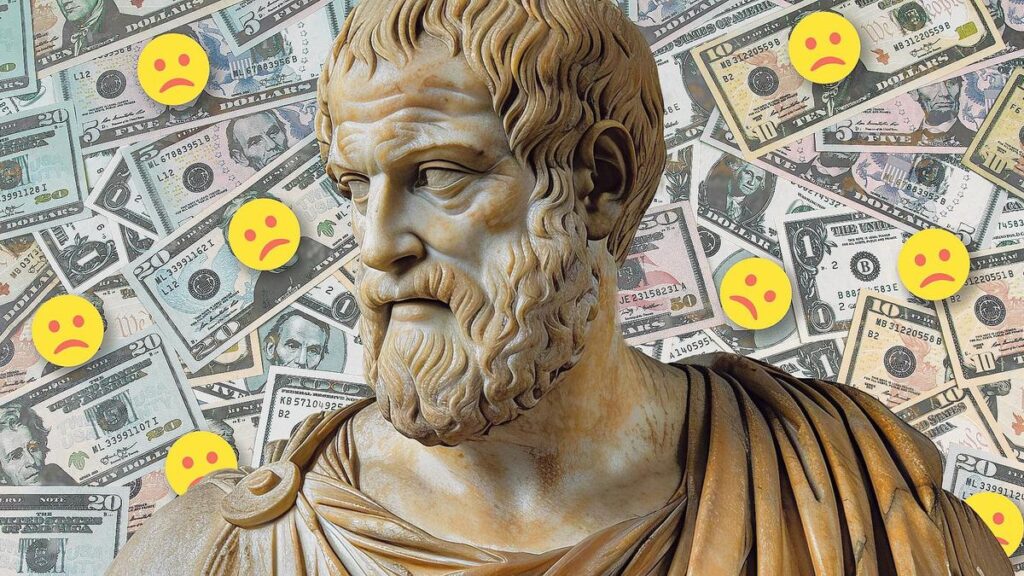
Elon Musk could potentially become the world’s first trillionaire, with Tesla’s board proposing a compensation plan valued at A$1.5 trillion, contingent on achieving ambitious growth targets. In contrast, the compensation landscape in Australia tells a different story. Recently, it was reported that departing Virgin Australia CEO Jayne Hrdlicka will receive nearly $50 million in shares and other cash benefits upon her exit. This disparity in earnings raises questions about the relationship between wealth and personal happiness.
Research from the United States indicates that the average person believes CEOs earn ten times more than the average worker, preferring a ratio closer to five times. In reality, the gap is significantly larger, with CEOs earning approximately 265 to 300 times more than average American workers over the past decade. Australians perceive their CEOs to earn seven times more than average workers, yet the actual gap is even greater, as a long-running study revealed that CEOs of the top 100 Australian companies earned 55 times more than average workers last financial year.
The philosophical inquiry into happiness and wealth is not new. Ancient Greek philosopher Aristotle introduced the concept of eudaimonia, which emphasizes living well through cultivated character rather than mere accumulation of wealth. This idea suggests that pursuing wealth should not overshadow one’s personal growth or relationships.
In modern studies, the correlation between money and wellbeing continues to be explored. A 2010 US study suggested that wellbeing peaks at around US$75,000, a figure that, adjusted for inflation, would be approximately US$111,000 today. However, further research indicates that the benefits of wealth diminish as income increases, particularly when moving from poverty to middle class. A 2022 study involving 200 participants from various countries, including Brazil, Indonesia, and Australia, found that those in lower-income nations experienced significantly greater happiness gains from receiving US$10,000 compared to those in higher-income countries.
Interestingly, participants in this experiment donated more than two-thirds of the received funds, highlighting a tendency to share wealth among family, friends, and charitable organizations. Decades of research have shown that materialistic goals often undermine wellbeing. The pursuit of wealth can lead to a cycle of comparison and low self-esteem, trapping individuals in a “hedonic treadmill” where they require ever-increasing wealth to maintain happiness.
Research conducted by Harvard University, which tracked generations of men and their children since 1938, underscores the importance of deep, meaningful relationships for overall wellbeing. American psychologist Abraham Maslow articulated a hierarchy of needs in 1943, positing that personal growth begins with financial security sufficient to cover basic needs.
Further studies suggest that “time affluence”—the freedom to spend time on personal interests—and “experiential buying”—investing in experiences rather than material goods—can enhance wellbeing by fostering skills, relationships, and cherished memories.
Current data indicates that economic inequality in Australia is on the rise, particularly affecting young Australians as housing becomes less affordable. Research from the UK suggests that increased inequality correlates with worsening social outcomes, including higher crime rates, substance abuse, and diminished social trust.
According to the latest data from the Australian Bureau of Statistics for the 2019-20 period, the richest 20 percent of Australians owned approximately 62 percent of the nation’s wealth. As this inequality grows, the potential for social issues rises, posing risks to the wellbeing of the broader community.
The pursuit of extreme wealth may not lead to greater happiness or fulfillment for those who benefit from deepening inequality. The question remains: how much wealth should the richest Australians own, and what impact does this have on society as a whole?
Brad Elphinstone, a lecturer in psychology at Swinburne University of Technology, emphasizes the need for a balanced approach to wealth and personal happiness. This article first appeared on The Conversation.






